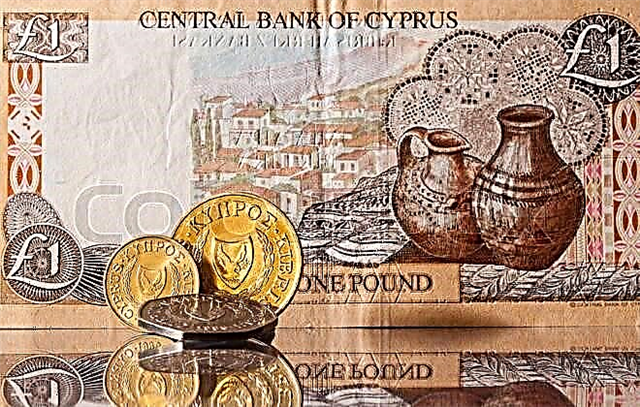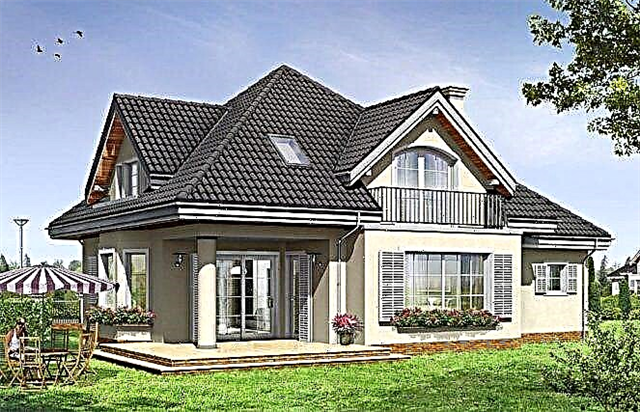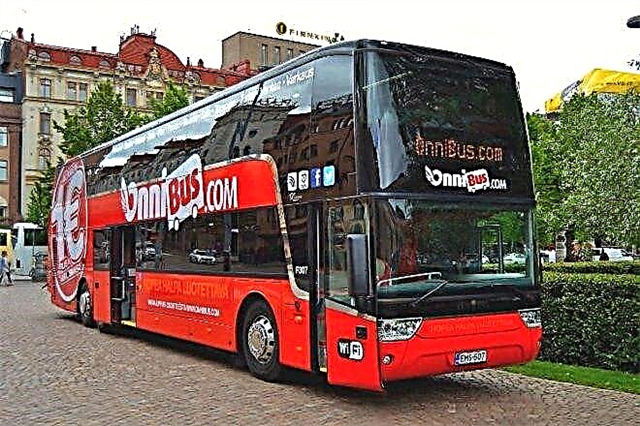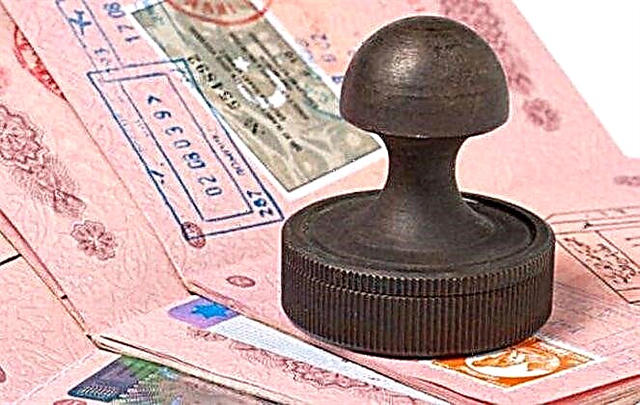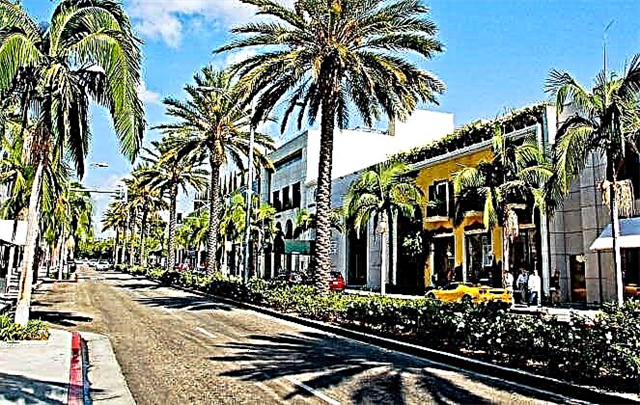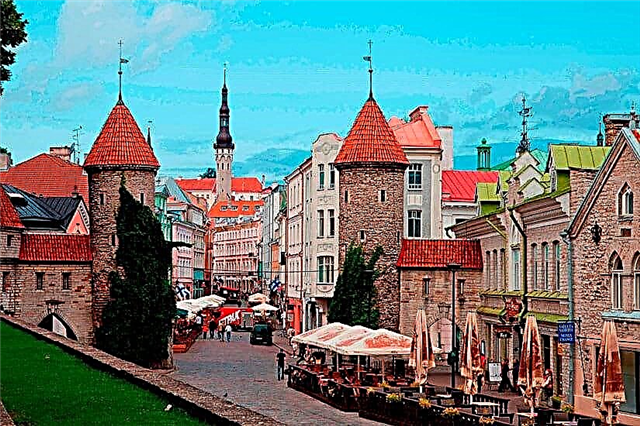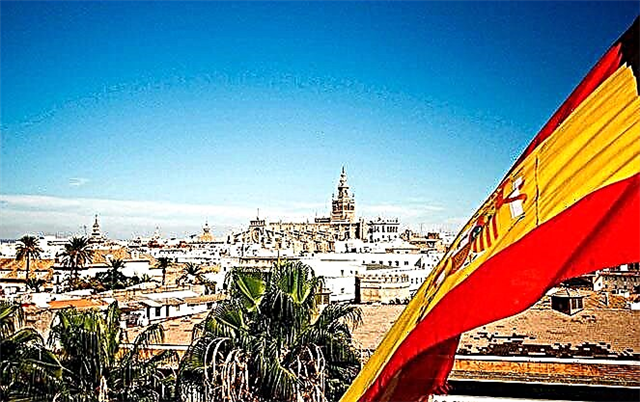Spanish real estate has attracted the attention of foreign investors for decades. The financial crisis of 2007-2008 hit the market seriously, but the effective measures of the Spanish authorities ensure its stable and confident growth. This attracts foreigners, including Russians: cumulatively, in 2021, the volume of investments in real estate from abroad exceeded 3.3 billion euros. Housing prices are rising, and therefore there is still time to properly invest their funds. We will show you how to buy property in Spain.

Why Spanish property is attractive
The good tone of the national, the evolution of the European and the outlook for the world economy contribute to the active growth of the Spanish real estate sector. The positive dynamics of 2021 instilled optimism in developers and foreign investors, and experts expect even greater growth from 2021: at least 570 thousand transactions are expected to be concluded against 532 thousand concluded in 2021.
An increase in demand inevitably leads to an increase in market prices. And even despite the colossal difference with the pre-crisis times (in 2007 the average price was 25.7% higher than in 2021), the dynamics never ceases to delight investors: growth forecasts for 2021 are at least 5%.
Considering these figures, it is no wonder that the demand for Spanish apartments is also growing among the Russian-speaking segment - in 2021 alone, the dynamics was 15.6%. But reasonable prices and an investment component are not the only things that attract Russians.
Democratic mortgage rates allow Russians to borrow Spanish housing. Just compare: the average rate in Russia for the fall of 2021 is 8.75-10-25%, while in Spain it is only 2.2%.
Moscow or any other large city of the Russian Federation cannot offer such "cheap" housing.
Plus the relatively straightforward buying process. Non-resident foreigners are allowed to purchase real estate without special additional conditions: the main condition is the presence of a foreigner's identification number.
The purchase and sale itself is relatively simple, but it takes a certain amount of time, since it is carried out in several stages. So, after choosing a suitable property and reaching an agreement with the seller, the selected object is reserved by making a cash contribution. After - verification of legal purity.

If everything is in order - signing the final sales contract and making a deposit (10% of the cost). At the last stage, the contract is certified by a notary, and the buyer transfers the final amount to the seller. We will tell you more about the purchase procedure later.
Other advantages include close communication with realtors and real estate agencies. Registered professional intermediaries will help you avoid the headache with the registration of the transaction and the re-registration of real estate, for which, however, they will require payment of a commission.
Intermediaries will be useful not only in the design, but also in the selection of an object, they will tell you about the pros and cons of foreign real estate, taking into account, among other things, your architectural tastes.
Popular types of residential real estate in Spain
There are many types of residential real estate on the Spanish real estate market, but all of them can be divided into 5 categories depending on the class of housing:
- Studios (estudio, piso estudio). One-room apartments are considered a budget form of housing. Usually not used for permanent residence, but rented out to tourists or students.
- Apartments (piso, apartamento). The most popular type of real estate, an analogue of our 3-4 room apartments. Apartments are estimated not by the number of rooms, but by the number of bedrooms. For example, a two-bedroom apartment. Duplex apartments and penthouses are not uncommon.
- Bungalow (bungalow, bungalow, duplex). The Spanish analogue of a condominium, there are one- and two-story. All apartments have a separate entrance, while in addition to them there is a private courtyard on the lower floor, and terraces on the upper floor.
- Cottages (chalet, casa, torre). There are family type (for several owners) and separate - for one owner.
- Villas (villa). Elite version of the cottage. A status thing is the personification of high income, comfort and privacy.
Basic expenses for the purchase of real estate
As in any other country, the total cost of buying property in Spain includes not only the cost of the transaction, but also a number of related payments. Depending on the type of real estate, its location and the procedure for registration, additional costs can range from 8 to 13%.
These include:
- Value Added Tax (Impuesto sobre Valor Anadido, IVА) - 10% of the transaction amount. VAT is paid by the buyer in the case of purchasing a primary property in a new building from a developer or in a bank.
- Property transfer tax (Impuesto sobre Transmisiones Patrimoniales, ITP) - 4-10% of the transaction amount, depending on the region. The tax is paid by buyers of secondary real estate starting from the second home purchase. The lowest rate is in the Basque Country (4%), Ceuta and Melilla (6%). The highest (10% each) are in Catalonia, Galicia, Cantabria and the Comunidad of Valencia.
- Stamp duty (Actos Juridicos Documentados, AJD) - 0.5-1.5%. The tax levied in favor of the region in the case of acquiring a new home or housing on a mortgage is set by each region separately. When concluding a mortgage loan, it does not apply to the amount of the transaction, but to the entire loan.
- Notary fees - 0.03-0.45% of the cost. Notary fees consist of two components - a fixed state rate and the cost of the transaction. Usually the cost of notary services is 400-875 euros.
- State registration in the property register (Registro de Propiedad) - 0.02-0.175% of the transaction amount, depending on the value of the property (the more expensive, the lower the rate). Usually it is 400-650 euros.
- Extract from the property register (Nota Simple) - 10 euros. Allows you to find out about the presence of encumbrances, about the current owner and other information about the object.
- Assessment of the market value of the object (Tasación) - 300-600 euros, will be required in case of a mortgage.
- Real estate insurance (Segurode hogar) - 100-500 euros per year. One of the prerequisites in the case of a mortgage.
- Real estate agency commission - 3.5-5% depending on the value of the transaction.
Features of the acquisition of real estate in Spain by a foreigner
The acquisition by Russians of real estate in Spain does not provide for any significant features. Thus, a foreigner does not have to be a resident of the kingdom, he does not need to confirm residence or work in Spanish territory, to confirm the legality of the funds used or otherwise prove his right to complete a sale and purchase transaction.
The advantage of buying Spanish real estate is that for Russians or Belarusians, you only need to obtain an identification number (NIE) and open a personal account in one of the local banks.
At the same time, they have access to almost any real estate, not just private housing. For example, they can easily acquire land, including for construction. However, one must take into account the restrictions that the law establishes in this regard:
- firstly, the land is divided into categories, many of which are prohibited from construction (agricultural land or land of historical / archaeological value);
- secondly, there is a ban on construction within the 100-meter sea coastline;
- thirdly, any construction involves the approval and obtaining of a license, taking into account the restrictions established in the region (number of storeys, area, and so on).
Yes, real estate prices are an order of magnitude higher than in Russia and the CIS countries.But preserving capital and earning income from renting out an apartment is far from all that gives a Russian citizen a home in Spain.
If the value of the transaction is equal to or higher than EUR 500 thousand, according to Art. 63 of Law No. 14/2013 "De apoyo a los emprendedores y su internacionalización", the buyer has the right to apply for a Spanish residence permit. We will describe the procedure for obtaining it below.
Searching for housing in Spain: real estate agencies for Russians
Real estate, as a major investment, is not acquired blindly - any object should always be inspected before buying. Since buying real estate without intermediaries is a big risk in Russia, what can we say about markets about which a potential buyer does not know anything at all ?!

Therefore, Spanish real estate agencies are of great interest. Firstly, many of them are aimed at the Russian audience, therefore they publish objects with a price indication in rubles. Secondly, realtors provide full support for the transaction, relieving buyers from many formalities, ranging from checking the legal purity of real estate and ending with registration procedures.
Many of them help not only with the purchase, but also with the registration of a mortgage and even with migration issues. So, the number of reliable Spanish agencies include:
- Malachi realty. An international agency, often working directly with developers. The Malachi realty base includes, as a rule, luxury residential properties, bungalows and apartments in low-rise new buildings near the beaches, as well as villas in the coastal area. Since the agency offers mainly new real estate in residential complexes under construction, prices start at 100 thousand euros. The company is ready to provide legal support and financial consulting.
- Globus real estate agency. A proven reseller on the Spanish coast with an office in Alicante, specializing in a Russian-speaking audience. The agency base includes thousands of properties for both purchase and rent. The agency's specialists will help you find apartments worth from 50 thousand euros and studios from 30 thousand. Wealthy clients will find for themselves villas costing from 300 thousand euros.
- Real estate agency Kadespa. The company specializes in expensive real estate worth from 100 thousand. In its database, clients will find luxury apartments, bungalows, exclusive villas and even whole hotel complexes on the coast for tens of millions of euros. The advantages of cooperation are the organization of the buyer’s stay in Spain for the period of registration, assistance in obtaining a mortgage and even a residence permit.
- Leanga Real Estate Agency. The company has offices not only in Spain, but also in Moscow, St. Petersburg and Novosibirsk. The agency's database contains about a thousand offers of real estate worth from 50 thousand. The site contains catalogs with studios, bungalows, apartments and expensive villas. In addition to intermediary services, Leanga assists in obtaining mortgage loans in Spanish banks, assists with paperwork and publishes offers for mortgaged real estate, the value of which can be 40% below market value.
- Real estate agency Alegria. The official website of Alegria contains several hundred offers of budget properties on the Costa Blanca. Despite the resort status of the region, the agency offers its clients studios costing from 30 thousand. For wealthy clients, there are penthouses for 100 thousand euros, and even villas with sea views for several million.
Self-Search Websites
Spanish real estate websites will help you to get acquainted with the market in advance, find out the prices for specific apartments in the desired area, determine the average price per square meter and compile a list of preferred properties. They are not tied to specific firms and real estate agencies, therefore they often contain objects from the owners. Although private realtors also publish ads here.

If you are looking for real estate without intermediaries - you are here:
- Idealista.com. The most famous website in Spain, contains more than 1.5 million ads for the sale of housing and commercial properties throughout the country. Every day the Idealista.com database is updated with 10-14 thousand new ads.
- Fotocasa.es. The second most important Spanish realty site. The database includes more than 1.2 million proposals across the country. One of the advantages of the portal is the ability to choose real estate in the desired region, village and even area.
- Kyero.com. A portal focused on the sale of private houses in different price segments. Here you can find both cheap demolition properties and villas worth over half a million euros.
- Iyasta.com. A convenient site for finding private houses. Contains not only ads, but also recommendations for the selection and registration of real estate.
- Habitaclia.com. A convenient resource for finding both new and secondary housing. A huge number of ads in Catalonia.
Another question is the pitfalls of buying without intermediaries. Finding and choosing a property yourself is not a big problem. But it is not so easy to make a deal according to all the rules.
Here are some tips from Spanish realtors:
- Be wary of blatantly underpriced ads or photos taken from the internet, or advertisers who live abroad or who only respond by email.
- Never transfer funds to book a house until you have seen the house itself and checked the documents for it. Insist on personal inspection, signing papers, and delivering funds.
- When inspecting an object, ask for a fresh Nota Simple extract, preferably with a translation. It indicates the current owner, the legal status of the property, the encumbrances imposed. If you have doubts about its authenticity, ask for it in the land register yourself.
- If the property is legally clean, check it for utility, tax and other debts.
The most popular regions in Spain for buying real estate
Each region of Spain is unique and distinctive in its own way. All this manifests itself in the local culture, traditions, mentality and even the cuisine of different regions. But along with this, potential buyers of real estate are interested in other factors.
For example, the landscape and tourist infrastructure, climate and distance from the coast, the average cost of the housing itself and the tourist attractiveness of the region.
If the buyer intends to move to Spain, the remoteness of social infrastructure also plays a huge role: clinics, large shopping centers, educational institutions, public transport stops, and so on.
In this section, we will figure out where it is better to buy cheap housing in 2021, where to find respectable and exclusive options, what is the average cost of housing and other features. We specifically focus only on coastal areas, because it is there that the most attractive housing is located.
Tenerife and Canary Islands
The Canary Islands are a favorite vacation spot for the rich from the 90s of the XX century. The Canary Islands were a respectable place when no one had ever heard of the Seychelles and Maldives in Russia.
The most famous place here is Tenerife, the largest island in the archipelago. Here the temperature does not drop below 23˚С all year round, therefore tourists arrive all year round. Real estate prices are also in line with demand.

The cheapest studio here starts from 35-40 thousand. But this is the central part of the island, far from the beaches and respectable areas. Those interested in the coastal area should be ready to shell out at least 100 thousand euros for a studio, at least 140 thousand euros for a 2-bedroom apartment and 300 thousand euros for a townhouse or bungalow.
Mallorca and the Balearic Islands
Mallorca, along with Tenerife, is one of the most beloved holiday destinations for Europeans. The warm sea and the unique mountainous landscape attract tourists almost all year round. Here you can find beautiful beaches, picturesque landscapes, and a lot of entertainment. Therefore, the average price, from which it is worth starting from, should be at least 2.8 thousand euros per m2 of living space.

The minimum price for a two-room apartment in the interior of the island, away from the coast in a residential area, is 50-60 thousand euros.
The cost of a new building from the developer is much higher - apartments near the coast will cost 150-250 thousand. Prices for penthouses and bungalows start from 230 thousand euros.
Well, villas for the rich start at 500 thousand euros and reach a space of 8-10 million.
Barcelona and surroundings
Barcelona and Catalonia in general is probably the most interesting place in all of Spain. Unique local culture, wide sea beaches, warm climate all year round and well-developed social infrastructure - all this makes Barcelona, perhaps, the best place to buy luxury real estate. Yes, the prices here are the highest in the country: it is a great success to find housing for less than 3 thousand euros / m2.

Prices for 1-bedroom studios with a decent renovation start from 70-80 thousand. Apartments in the secondary market cost no less than 150-170 thousand euros.
Even more surprising is how much the property under construction costs:
- 1-room apartment of 50 m2 will cost no less than 240 thousand euros;
- apartments in good new buildings and with a good view - not less than 400 thousand euros;
- a modern cottage can be found for 400-600 thousand euros, and solid mansions are no cheaper than 1.3 million euros.
Costa del Sol
Costa del Sol is the southern coast of Spain, the "sunny beach" and the place of daily sunrises. Here guests will find not only luxurious beaches, but also picturesque mountain ranges and even valleys untouched by humans. Despite the southern location, summer heat is a bearable phenomenon, the temperature does not rise above 30˚С. Real estate prices are also pleasantly surprising - prices start from 2 thousand euros / m2.
A realtor in Benalmadena is ready to offer 2-bedroom apartments up to 100 m2 at a price of 210 thousand. You can also find cheaper real estate: for example, 1-bedroom apartments in the sleeping areas of Malaga can be found for 40-50 thousand euros.

There are also many options for rural real estate: for an amount of up to 80-100 thousand euros, you can buy a small but cozy village house. For that kind of money in the southeast, for example, in Almeria, you can only buy an apartment in a residential area.
Elite real estate in the south is also plentiful: townhouses and bungalows start at 350 thousand euros, villas and houses - from 450 thousand euros.
Costa Brava
Costa Brava is the northern coast, one of the most attractive places for acquiring high-status luxury housing. The symbiosis of inaccessible rocky cliffs, picturesque bays and bays attracts millions of tourists every year. Therefore, housing prices are on average higher than throughout Catalonia - starting at 3.2 thousand euros / m2.

Those who search for up to 30 thousand euros have nothing to do on the northern coast:
- 1-bedroom studios with an area of 30 m2 near the coast are offered here from 60 thousand euros;
- a furnished apartment in Lloret de Mar directly for renting out to tourists can be bargained for 75-80 thousand euros;
- 1-bedroom apartments with a terrace will cost 100-120 thousand euros;
- decent apartments in the coastal area of 70-80 m2 will cost no less than 200-250 thousand euros.
Housing prices in new buildings are generally sky-high, because the Costa Brava is a region where secondary real estate is bought.
Costa Blanca
Costa Blanca is perhaps the warmest and therefore very popular place among Russian tourists and potential home buyers. It has a typical Spanish coastal landscape: beaches, palm trees, mountains, sea and plains.

But all this fades into the background when it comes to housing prices - here they are the lowest along the entire coast, only 1.2-1.5 thousand euros / m2. But this is for now: the growing influx of tourists in the region and the demand for tourist accommodation indicate that prices will rise.
Today, in Torrievieja, you can easily find in the coastal area a cozy studio of 30 m2 for 30-35 thousand euros.
An apartment of 70 m2 in the suburbs of Alicante is easy to find for 45-50 thousand. In Torrievieja, such apartments will cost 60 thousand euros.
Bungalows and townhouses of 70-90 m2 can be found at a price of 85-100 thousand euros, duplexes - from 130 thousand euros, bungalows and townhouses in new buildings - from 150 thousand. Prices for villas and detached houses start from 100 thousand euros ...
Purchase and sale transaction from A to Z
A citizen of the Russian Federation, like any other foreigner, is in no way infringed on his rights when buying a home in Spain. Regardless of the type of real estate, the purchase procedure follows a standard scheme, which includes 4 main stages:
- Selection of real estate: search through the Internet, trip to Spain for inspection, reservation.
- Preparation of the transaction: execution and verification of the necessary documents, preliminary agreement.
- Completion of the transaction: preparation of the final agreement, its signing.
- Registration of ownership, final calculations, payment of taxes.
The representative of the selected real estate agency must familiarize you with the peculiarities of owning real estate for a foreigner (we do not recommend making a deal without intermediaries). We suggest that you briefly familiarize yourself with the main stages and procedure.
Search, selection and reservation of accommodation
Everyone decides on their own whether to use the services of realtors and real estate agencies or to independently search for housing on Internet sites. We have already discussed the recommended sources, advantages and disadvantages of such search methods above.
After the desired object is selected, we recommend that you take the time and visit Spain to inspect all the objects of interest. Do not make a blind decision, plan your trip in advance and it will take you no more than 5-7 days.
Plus, many agencies targeting the Russian-speaking audience help with organizing such a visit.
A personal visit will reveal:
- hidden construction defects;
- underdeveloped infrastructure;
- great distance from the coast and other cities;
- finding housing as part of an unfinished complex, and so on.
If the desired object is found, it is recommended to reserve it. The reserve is usually 3-10 thousand euros, depending on the value of the object and is drawn up by a reservation agreement (contrato de reserva).
However, it is not recommended to transfer funds directly to the seller, they remain with the notary, real estate agent or your representative / lawyer. The contract fixes the intentions of the buyer, therefore, after signing it, the object is removed from sale.
Preparation of the deal
After signing the letter of intent, the mediators begin to prepare the documents for the transaction. The buyer needs to obtain an identification number (Número de Identificación de Extranjero, NIE), without which he cannot perform any legally significant action. It can be issued both at the Spanish Embassy in the Russian Federation, and at any State Secretariat for Migration Affairs at the place of stay (Secretaría de Estado de Migraciones).
To register a number you will need:
- application form EX-15, which can be found here;
- international passport;
- real estate reservation agreement, which is the basis for obtaining a NIE;
- power of attorney if a representative is involved in the design.
The next step is to open a personal bank account. There shouldn't be any problems with this, just a passport and NIE is enough. The account will be required to pay taxes, utility bills, transfer funds to the seller.
Next - real estate check. If you cooperate with a realtor, he must check all the documents, submit Nota Simple, find out about the presence of unpaid payments and taxes, compliance of the technical documentation with the real state of affairs.
After the final check, a preliminary contract (contrato privado de compraventa) is signed. According to it, the buyer must pay 10% of the cost of housing as a deposit. If he refuses the deal - he will lose the deposit, if the seller refuses it - he will pay the specified amount to the buyer.
If necessary, a mortgage is issued to the buyer.
Conclusion of a transaction and registration of real estate
The final stage is the signing of the purchase and sale agreement with a notary.The buyer can do this on his own or instruct a representative by power of attorney, for example, an employee of the selected real estate agency. After that, the agreed funds are transferred to the seller or transferred to his account.

The next step is to re-register the buyer's ownership at the local land registry office. It is recommended to entrust this to a realtor.
After that, you must pay the registration fees, transfer tax, stamp duty and any other applicable taxes. As a result, the buyer receives a sale and purchase agreement with a registration mark and Nota Simple, where he is listed as the owner of the property.
Fair tenure
After receiving Nota Simple, the buyer becomes the full owner. At this moment, he has many other troubles:
- First, it is necessary to sign (or re-execute) contracts with utilities and organizations that maintain the common property of the owners (local housing office).
- Secondly, it is necessary to regularly pay for maintenance and utilities. For a small studio, these costs will be approximately 1-1.5 thousand euros per year.
- Thirdly, in order to be able to visit your home, you need to issue a multivisa or residence permit. A residence permit is issued without any problems if the cost of housing is more than half a million euros.
- Fourth, if real estate is an investment, you need to rent it out on a regular basis. Long-term rentals are not profitable, therefore it is recommended to rent them out for short-term tourists. In order not to do this on your own, we recommend concluding an agreement with the agency that formalized the apartment upon purchase.
What else should you pay attention to when buying
Among other things, before signing the sales contract, we recommend that you pay attention to the following points:
- The presence of communal debts. The administrator or chairperson of the local community of home owners can issue a certificate of their absence. Remember that if the debts are not paid, they will go to the new owner.
- Real estate tax debts (Impuesto de Bienes Inmuebles, IBI). You can check your payment at your local city council.
- Do not forget about the energy certificate (Certificado energético) - a mandatory document when selling a home. This document confirms the energy efficiency class of real estate, a description of the energy characteristics, which, accordingly, is one of the pricing factors.
- If the condition of the house is in doubt, ask the seller for a technical and building supervision report (Inspección Técnica de Edificios, ITE).
- If this is a home from a developer, ask for a technical design (técnico aprobado) and a building license (licencia de edificación), a land registry certificate (certificado del Registro de la Propiedad) and other mandatory documents.
Conclusion
Buying a home in Spain does not create any particular difficulties for a buyer from Russia: all conditions have been created here to protect foreigners from problems. But there are also peculiarities: from the selection and search for housing and ending with its verification and registration. Therefore, it is not recommended to engage in the transaction on your own - in Spain there are many real estate agencies focused on Russian-speaking buyers. They will not only help with the selection and registration, but also organize a trip, and even assist in obtaining a mortgage.


